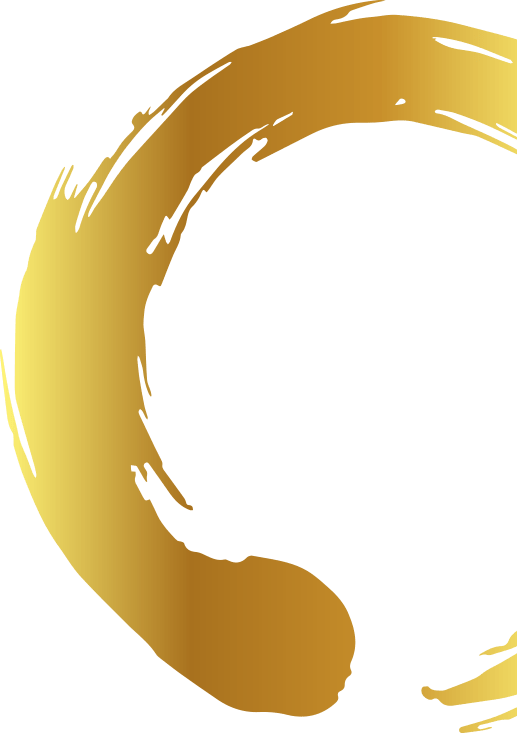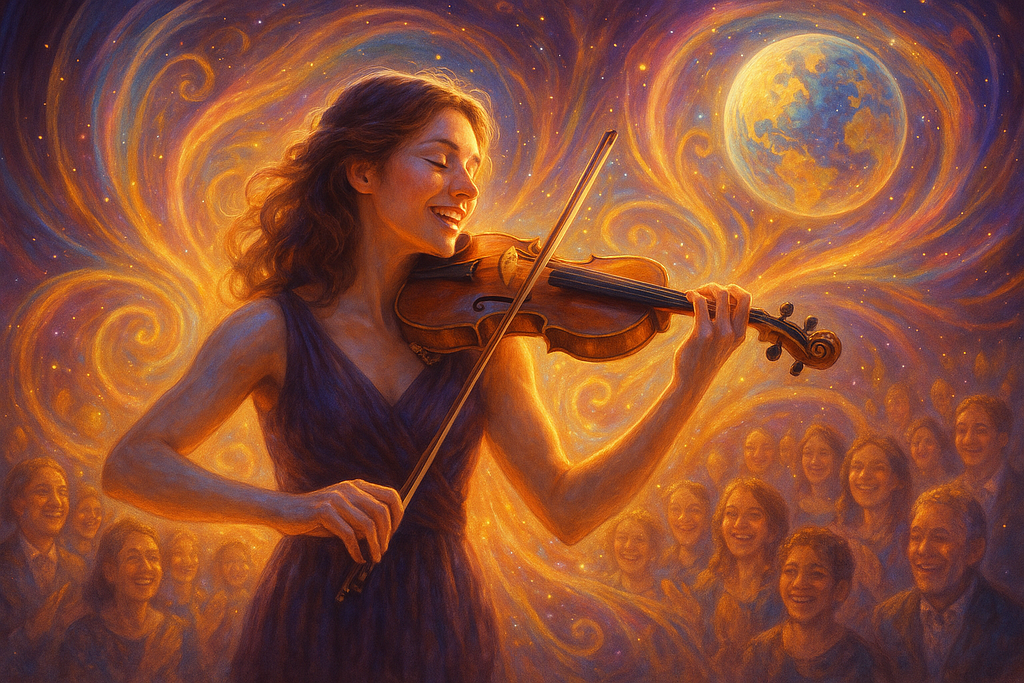How to motivate yourself to practice or make art – without willlpower! You’ve probably had times when you just don’t feel like practicing or working on your artistic projects. When you feel this way, there’s nothing wrong with you – you’ve probably just become disconnected from what brings you truly alive. But relying on your willpower to muscle through your rut won’t help.
Nearly everybody uses willpower to force themselves through the hard times, but willpower is a finite resource and is easily exhausted. When you run out of willpower and you keep forcing yourself, then you’ll get tense, stressed, and burnt out – and is that really what you want for your creative practice? The solution is to get in touch with what truly brings you alive and make that the center of your artistic practices.
See the journal prompt below (included at the end of this video) for a powerful start to this process.
This video features an excerpt from Chapter 5 “The Yoga of Art” from my upcoming book. Read the full excerpt from this video below.
Be among the first to know about my upcoming book “Soulforce Arts: The Vital Role of Musicians & Other Artists in a World That’s Lost Its Mind” by signing up for my mailing list at JosephArnold.com.
Joseph Arnold Violinist, Alexander Technique Teacher, Director of the Soulforce Arts Institute
“It’s not that some people have willpower and some don’t… It’s that some people are ready to change and others are not.”
The scenario at the beginning of this chapter is essentially about motivation: what motivates you in your creative practice and how do you respond when your motivation shifts or runs out? This is an essential question for all artists; mastering your art form clearly requires the motivation to work hard, get through the challenging times, and make sacrifices, after all.
And yet, what many fail to grasp about the path to mastery is that the place from which your motivation comes has an enormous impact on your quality of life and art. The trouble is that the predominant form of motivation in our society is really a form of inner conflict: The War Against the Self, in which there is a battle of wills between the part of you that wants to do something and another part that doesn’t. For many in our society, the War Against the Self is so familiar as to be invisible and thus goes largely unquestioned. But as we shall see, despite its ubiquity, the War Against the Self is a poor basis for the creation of transcendent art.
The War Against the Self is a natural outgrowth of the Story of Separation. It is a profound form of self-rejection, which says that your body and its feelings are somehow base, unruly, untrustworthy and in need of constant vigilance and correction. In this story, the only solution for when you don’t feel like doing something is to steel yourself against your lack of motivation; to rally your willpower and just make yourself do it. But it turns out that this strategy has some serious drawbacks.
If you’ve ever tried to change a habit through sheer force of will, then you will already know that willpower is a finite resource, one that is quickly drained by injudicious use. In fact, the overuse of willpower actually leads to many of the challenges that artists commonly face: physical tension, emotional strain, creative ruts, and burnout. What’s vital to understand is that if these are the challenges that currently hinder progress in your creative life, then your progress will only be further hindered by the use of yet more willpower. Indeed, for many highly-trained musicians and other artists, your greatest creative gains will only be made possible by finding an alternative to willpower. This is because the overuse of willpower is part of a vicious cycle which causes the very problems it’s trying to solve.
The answer, as we saw with Playing From the Heart, is instead to connect with what truly brings you alive. Learning to connect with this and then letting it lead your artistic life will not only relieve many of your current challenges, but will yield unexpected creative fruit that simply cannot be otherwise found through effort and toil. For example, instead of saying “This is what I have to do today,” you could ask, “What would bring me the most alive today?” But for many, the War Against the Self is so entrenched that the mere notion of letting go of the rigid application of willpower and following what feels good instead brings up intense anxiety. “But wait”, you might say. “If I just let myself do whatever I want, how could I possibly reach my goals? Won’t I just become a lazy bum, doing nothing but eating doughnuts and watching Netflix?”
Notice here the underlying assumption that your innate desires are somehow bad and unworthy. Sure, it’s true that if you’re used to a life of self-denial and self-control that if you give yourself a break you may end up catching up on some much-needed rest, relaxation, and enjoyment. But that wouldn’t last forever. Maybe you’d lay around for a day or two, but eventually you’d get tired of being in bed, and you’d want to eat something other than doughnuts. So, you’d get up and do something else, perhaps engaging in a creative project, spending time with friends, or doing other things that actually nourish your body, mind, and soul. For many, the road back to Soulforce begins with a healthy dose of such nourishment.
The Yoga of Art is founded on the idea that there is an innate intelligence inside you, one that tells you when to rest, when to act, and what to do. With practice, what you may discover is that acting upon this intelligence consistently brings you more alive. At the very same time, this practice will also show you any old habits, beliefs, or behaviors that represent areas of disconnection in your life. When you notice these, remember that these are simply your inheritance from a society that consistently serves the lesser gods rather than what brings us alive. And the lesser gods are jealous! Seen from their vantage point of disconnection, anything that brings you more alive is often viewed with suspicion. Keep this in mind when you practice the Yoga of Art; be aware of any harsh judgments that come up, because the parts of you that still serve the lesser gods may tell you that what brings you alive is stupid, irresponsible, lazy, childish, or insane.
In the long run, however, you may discover that the real insanity is ignoring the very real consequences of acting in service of the lesser gods. Because doing so disconnects you from what is alive inside you, and makes you feel contracted, heavy, and uninspired. These consequences, then, are not a sign that something’s wrong with you—far from it! It makes perfect sense to feel disconnected when doing something just for the money, for instance. Seen in this way, such disconnection reveals itself to be a sign of your innate intelligence at work. So, when you’re feeling unmotivated, the real question is not how to manipulate or force yourself into following some preconceived plan (which is just the War Against the Self), but instead to ask where your motivation is coming from.
Thus, the real problem behind a lack of motivation isn’t an insufficient use of willpower; it’s that you’re not connected to what truly brings you alive. If you were connected to this, you would have no problems with motivation at all. In fact, the opposite would be the case; if you were in touch with what brought you truly alive, wild horses couldn’t keep you from your creative practice. The real answer, then, is to get back in touch with what brings you alive and to learn how to let that lead your every artistic decision.
Consider the role of willpower in your life. What are the times when you most often force yourself to do things you don’t really want to? What motivates those decisions?
Reflect on moments of physical tension, emotional stress, slow progress, creative ruts, or burnout. What’s the role of willpower in each of these situations?
What stories or feelings come up for you when you consider letting go of willpower and letting yourself do what feels good, instead? What fears or judgments might you have about yourself or someone else who did this? Spend a few minutes journaling about what you discover.



